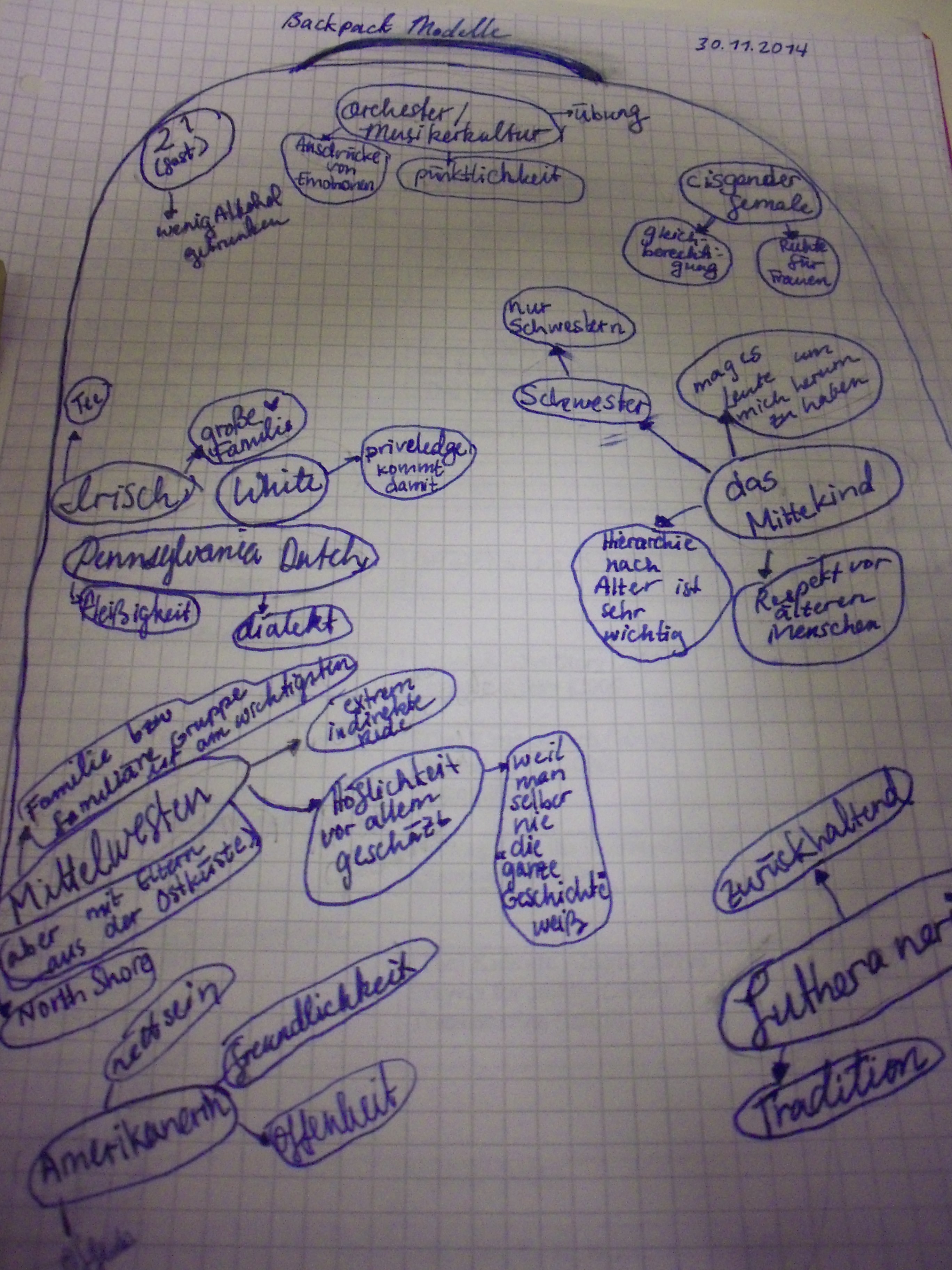One of the things that has most occupied my time since arriving in Germany is the question of assimilation or “Anpassung” as it is called in German. As I spend more time in a country that has grown to be my second home, I ask myself how central this part of my life has become to my identity. On the one hand, it feels like being here is a wonderful dream. I have a scholarship, so I don’t have to work. I have my own apartment, so it feels like I’m living on my own. I have classes, so I’m really studying. But on the other hand, it seems very separate from the reality that I have come to know whilst living in another country.
When I first lived here, it was my first time away from home, my first time away from the U.S. and my first time away from my family. I thought that because I was having an experience that was so vastly different from anything that I’d done so far in my life, that I had to change a lot throughout it. I thought that it was going to be the defining aspect in my life more so than anything else that I’d experienced. That thought process stayed with me for quite some time, actually. Even when I started at Valpo, I thought that the experience of having been abroad somehow defined me, somehow made me something totally different than I had been before. But now, living in Germany a second time, I am starting to realize that although studying abroad has helped to change many of my perspectives in life, many of the ways I look at things, many of the ways that I make decisions, it is perhaps not the end all, be all of my life. I know that sounds somehow strange to say, but I know that although I am here, I can somehow make an identity for myself independent of what my own expectations for the other country are.
For instance, in my intercultural competence class, we did a simulation about how people react differently when they come in contact with a different culture. Half of the class was assigned to be part of a home culture and half of the class was assigned to be the visitors in the culture. One of the rules in order to make friends with the visitors was that they were supposed to tell something about themselves before the home culture would accept conversation with them. One of the most surprising things that we noticed at the end was that the visitors, upon talking with the home culture for the first time didn’t even introduce themselves when they first met. It seems like the perfectly logical thing to do when you first meet someone new. You introduce yourself to the others and let them know who you are, but for nearly every visitor that interacted with the home culture, a simple introduction was lacking. The expectation of the visitor was that they were supposed to become a part of the home culture and learn about it and that their own culture, their own way of approaching the situation was somehow independent of the entire exchange.

Just like my real backpack, culture comes with me and has tools that help me to process the world around me.
And so for me this lead to a lot of thought about how I interact as a visitor in German culture. How do I ignore or overlook parts of my own culture in an attempt to look for the parts of German culture to which I should react. I have to admit, sometimes I am a bit embarrassed to admit that I am American. In part this has to do with the fact that my culture is one that is easily identifiable in the media and therefore something that many people automatically associate with a different picture in their heads than I. To be perfectly clear, it’s the media’s projection of American culture, rather than the culture itself that I find embarrassing. It makes me feel sometimes that I’m disappointing people by not living up to their expectations or having to explain that this is an image that people falsely have in their minds. Sometimes I think that this media-based image makes me worry overreact in anticipation of being categorized by the preconceived notions of others. It makes me too eager to assume that my identity as an American is more important than my identity as an individual. And even that is highly confusing territory. As soon as I say my name, which sounds utterly foreign to German ears, people already ask about my nationality. And so already, it seems like this is something that somehow defines me. As soon as it comes out that I’m American, it feels like everything I say is a type of comparison from things in my home country or questions about the US or questions about “How Things Are” in German or American culture. “How Things Are” questions seem to me to be some of the dumbest questions out there in terms of getting to know a person, because it is so intrinsically difficult to separate the individual perspective from How Things Are without misconstruing what may just be an individual experience as a cultural norm. It also makes the individual seem less important, and although we can learn a lot about a culture by talking to the individual, it is difficult to learn a lot about the culture when talking solely to the individual or about the individual when talking about the culture at large.
One of the things that I have realized to be a difficulty insofar as being able to communicate at a deeper cultural level is my personal inability to define my own preconceived notions about German culture. On the one hand, I know the stereotype about German punctuality, but on the other hand, I also lived with a family for a year that ran on a schedule that was much more fluid than I had initially expected. I will admit, that to some extent some of the expectations that I carried with me were that Germans would automatically accept me as one of their own simply on the grounds that I was interested in their culture and wanted to learn about it. Thus far, I have found that a lot more work has got to be put into “becoming a part” of a foreign culture, if something like that even exists at all. No matter how much one changes oneself, the home culture remains looming in the background, it the way that you approach something, in gut reaction to something that you see for the first time, in a way that cannot be shed by simply the will to try something new.
And so this balancing act between my own culture and the culture around me remains. How to authentically experience a culture without simply ignoring the reality of self at hand and how to try to put aside that self without simply playing the part of something one is not. What are the real factors that affect the nature of culture and self?
I’m off to keep looking.
Bis bald!

Leave a Reply